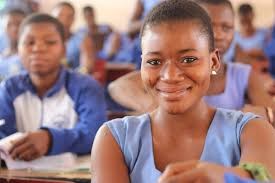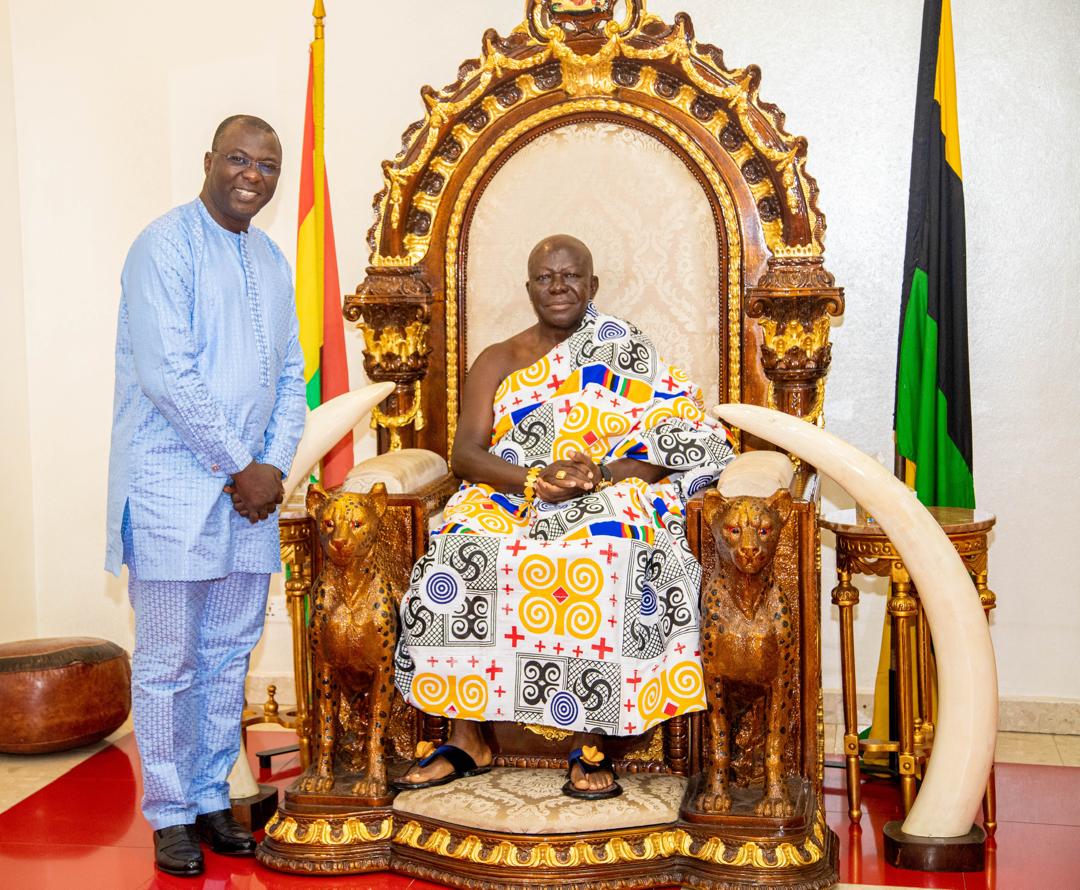Free SHS must be protected at all cost – Varsity dons declare

A group of university lecturers in Ghana have announced a campaign to protect the Free Senior High School (SHS) policy, emphasizing its crucial role in the nation’s socio-economic development. The academics have committed to a week-long awareness tour from November 20 to November 27, 2024, covering the Central, Upper East, and Upper West Regions. The initiative aims to raise awareness and support for the policy, which they believe must be safeguarded at all costs.
Speaking on the Atupan Show on Asaasepa 107.3 FM on Monday, November 18, 2024, hosted by Bonohene Baffour Awuah, Dr. Frank Bannor, a Development Economist and Lecturer at the Ghana Institute of Management and Public Administration (GIMPA), and Professor Isaac Boadi, Dean of the Faculty of Finance and Accounting at the University of Professional Studies, Accra (UPSA), shed light on the motivations behind their advocacy. The segment, titled “Academics Join Hands to Protect Free SHS,” featured an in-depth discussion of the policy’s impact and the rationale for its proactive stance.
Dr. Bannor described the initiative as a “transformational policy” that has democratized access to secondary education. Speaking passionately about the importance of the program, Dr. Bannor said, “We cannot afford to let Free SHS falter,” emphasizing the critical role it plays in leveling the educational playing field for children from disadvantaged backgrounds.
He highlighted the policy’s impact in reducing financial barriers for countless families. According to him, thousands of students who would otherwise be unable to afford secondary education are now able to fulfill their academic aspirations. He cited the program’s undeniable success in enabling equal access to education, something that has long been a challenge in Ghana’s history.
Adverts against Free SHS
Reflecting on the opposition the Free SHS policy faced from the National Democratic Congress (NDC), Dr. Bannor provided an extensive history of the party’s skepticism and vocal resistance. He noted that during the 2012 election campaign, the NDC commissioned approximately 47 advertisements aimed at discrediting the promise of Free SHS made by then-candidate Nana Akufo-Addo, with many party members considering it an unrealistic dream.
He mentioned that in the lead-up to the 2016 elections, then-President John Mahama famously criticized the policy. “Ghana must not implement Free SHS on the whimsical promises of a desperate politician,” Mahama said, warning of potential failures akin to those experienced in other African countries that had tried free education. Dr. Bannor also referenced Mahama’s 2012 speech in Okere, where the former president claimed, “Free SHS will collapse the education system of Ghana.” In another instance, Mahama dismissed the program as a mere “political gimmick” while speaking at the University of Cape Coast in 2016.
More opposition
Dr. Bannor enumerated comments from other prominent NDC members who opposed Free SHS. Former Education Minister Lee Ocran in 2012 remarked, “Free SHS can only be possible in 2032, in 20 years.” Hajia Joyce Zeinabu, then National Women Organizer, warned in 2016 that the policy would “breed teenage pregnancies.” In 2018, General Secretary Johnson Asiedu Nketiah labeled the policy “shambolic” and suggested it would need to be scrapped. Elder Ofosu Ampofo, the NDC National Chairman, also claimed that the Double Track system under Free SHS was causing teenage pregnancies.
Dr. Bannor criticized these comments and expressed concern over the potential risks of the policy being reversed or weakened. “It is dangerous if we, as university lecturers, don’t wage a frontal war to protect Free SHS,” he said, noting that the government has invested over 10 billion cedis in the initiative.
Data-backed achievements
To counter claims that Free SHS has compromised educational quality, Dr. Bannor presented a comparative analysis of student performance. Using data from the West African Examination Council (WAEC) and the Ghana Education Service, he compared results from 2015 and 2016—before the implementation of Free SHS—to those from 2020 and 2021.
In 2015, only 25.29% of students scored A1-C6 in Mathematics, with 37.17% failing (F9). By 2020, the first batch of Free SHS graduates showed substantial improvement, with over 50% of candidates earning A1-C6 in core subjects. Mathematics performance, for example, climbed to 65.71%, while English Language saw a pass rate of 57.34%.
Dr. Bannor underscored that approximately 60% of the 342,500 candidates in 2020 scored between A1 and C6 in their best six subjects, qualifying them for tertiary education. “Performance has generally improved under Free SHS, debunking fears that the policy would compromise academic standards,” he stated.
Social Impact of Free SHS
Beyond academic results, Dr. Bannor pointed out that Free SHS has achieved gender parity in education. “Because of Free SHS, we have gender parity at the SHS level for the first time in Ghana’s history,” he said, addressing the previous norm where boys were prioritized over girls in education. Drawing from his personal experience, he shared, “I come from Obuasi, and I understand the reality of financial barriers. Free SHS is a blessing in disguise, and we must all protect it.”
He emphasized the importance of supporting transformational policies that uplift society and warned against political rhetoric that could jeopardize such gains. “A 24-hour economy is purely demand-driven, and if the demand is not there, then it is purely a slogan,” Dr. Bannor stressed.
Economic cornerstone
Taking his turn in the conversation, Professor Isaac added that Free SHS serves as a cornerstone for Ghana’s long-term economic growth. “An educated population drives development,” he emphasized. He underscored the link between education and human capital formation, arguing that the policy’s continuation is essential for building a skilled and competitive workforce capable of transforming the nation’s economic landscape. “Our natural resources alone cannot guarantee a prosperous future; our people, educated and empowered, will drive that change,” he said. Prof. Boadi emphasized the need for Ghanaians to embrace and defend it against criticisms and perceived threats.
He reflected on Ghana’s educational struggles before the policy’s implementation. “We were in this country when we witnessed how education suffered,” he stated. Highlighting the substantial investments made under Free SHS, he declared, “When you look at the investment and the benefits, it is mind-boggling, and we must protect it.”
Mobilization for Free SHS awareness
Prof. Boadi revealed that a group of about 200 university lecturers, including himself, has committed to a nationwide campaign. Starting next week, the lecturers will tour Ghana’s Central, Upper East, and Upper West regions to engage parents and guardians. He said their goal is to explain the immense benefits of Free SHS and why it is imperative to safeguard the policy.
“We think Free SHS is under threat,” he noted, referencing the National Democratic Congress (NDC) and what he described as their “pronouncements and rejection” of the policy in the past. “So, we teachers in universities are taking it upon ourselves to embark on this campaign,” Prof. Boadi said.
Responding to criticisms that Free SHS has compromised the quality of education, Prof. Boadi dismissed such claims as baseless. “If someone says Free SHS has affected the quality, then he or she doesn’t know what they are saying,” he indicated. He compared the policy to historic initiatives like the Northern Board Scholarship and the Cocoa Scholarship, both of which played pivotal roles in improving education in Ghana.
Prof. Boadi cited examples of Free SHS beneficiaries excelling academically and in extracurricular fields. “Our students are topping robotics competitions, and some have even secured places at prestigious institutions like Brunel University in the UK,” he said. Additionally, he pointed to data showing improvements in core subjects, including Mathematics, Science, and English, to affirm the policy’s impact on academic performance. “The results are glaring,” he stressed. “The NPP government has not compromised the quality of Free SHS.”
Easing financial burdens
Prof. Boadi further highlighted the financial relief that the Free SHS policy has provided to parents across the country. He detailed the government’s provision of free uniforms, admission fees, maintenance fees, physical education kits, and supplementary stationery. “The government spends over 18,000 cedis per student annually under Free SHS,” he said. “When you multiply that by the number of students each year, the investment is significant.”
He underscored the broader vision of the policy, comparing it to other social interventions like free maternity care. “Quality, affordability, and access are the cornerstones of this policy,” Prof. Boadi emphasized. “If we want a country to develop, we need both the mindset and the resources. These are the building blocks.”
Calls for a collective effort
Prof. Boadi also referenced a past statement by former President John Mahama, where Mahama admitted that in political campaigns, “we lie a little and speak the truth a little.” According to Prof. Boadi, such admissions highlight the need for vigilance and a commitment to preserving policies that genuinely benefit the nation.
He added that “the Free SHS policy is a national asset that must be protected and cherished. If we want to build a strong, educated society, Free SHS is a non-negotiable part of that vision,” he added.
Story by Bright Philip Donkor




